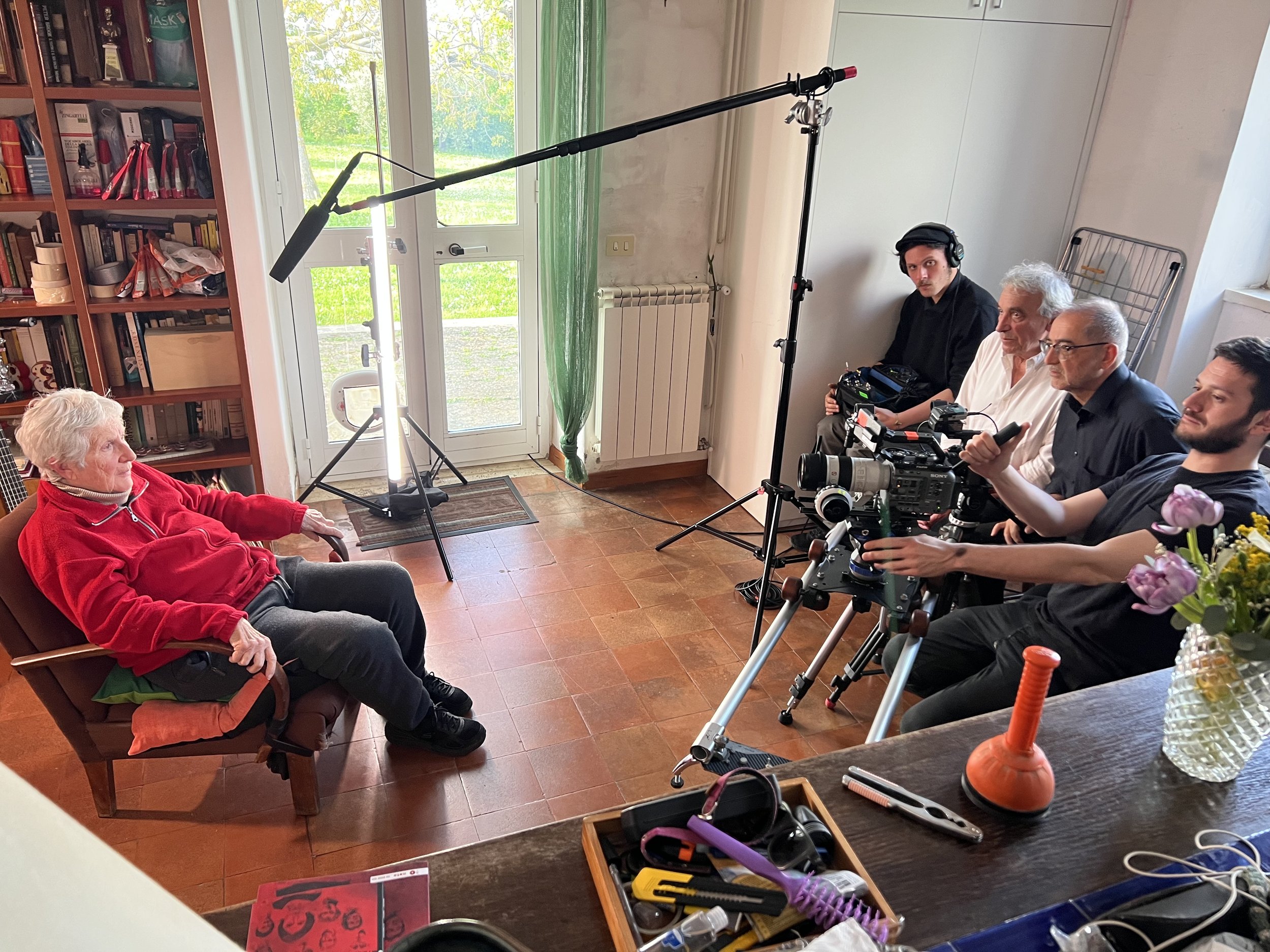Giovanna Marini: Visiting workers in shacks
We interviewed famous italian folk singer Giovanna Marini in Rome.
Giovanna is an Italian musician, songwriter and ethnomusical and folkloric researcher. Her multifaceted activity has made her one of the most important figures in the study, research and performance of the Italian folk music tradition, but she is also the author of songs and cantatas of her own composition.
In 1973, the famous singer was visiting Zurich and decided to visit some seasonal workers who were living in shacks on the periphery of the city. This traumatic experience for Giovanna later became one of the most famous songs of her repertoire: "A Zurigo uno mi dice”.
Giovanna Marini was rejected by the workers. One of them even burst into tears. These men were ashamed of the conditions in which they were forced to live.
Shack settlement on the outskirts of Zuerich (KEYSTONE/PHOTOPRESS-ARCHIV/Ernst Baumann)
Lyrics Translation:
In Zurich one says to me, “Come to the seasonals.
Let’s go, let’s visit them.” As they see us coming they leave while they were talking
“There they are,” says one seasonal They leave while they were talking “WE are Italians we want to greet you” “Italians yes but of a different race”
“Excuse him he’s a little crazy excuse him, ma’am please have a seat, ma’am excuse the shack excuse the unmade beds excuse the misery my lady”
Good morning and good evening how are you all doing?” “Thank you it’s all right you had better leave.”
” Good morning and good evening are you coming back to vote?” “We came back at Easter you can’t come back anymore.”
“Good morning and good evening I wanted to greet you.” “We are very grateful to you it is dark you must go”
And he cries old and lonely He cries old and alone He gets up that other one Comes to console him With his hand on his shoulder Bends down to murmur “Don’t cry compadre swarm that it hurts you.” With her hand on his shoulder Leans over to murmur “Don’t cry compadre, com’on that it hurts you.”
Behind the scenes: our interview with Giovanna



